What Causes Gum Tenderness?
Gum tenderness can result from a multitude of factors. The first signs of gum disease, such as bleeding, swelling, and redness, often occur due to poor brushing and flossing habits. Hormonal changes during puberty, pregnancy, or menopause can also lead to swollen and tender gums. Canker sores, abscessed teeth, oral cancer, and tobacco use are among the other possible causes. Poorly fitting dentures or orthodontic treatments can irritate the gums as well. Infections, vitamin deficiencies, and certain medications may also contribute to gum tenderness.
Treatments for Gum Tenderness
Simple home remedies like rinsing your mouth with warm salt water, using soft-bristled toothbrushes, and over-the-counter painkillers can provide relief for achy gums. Other over-the-counter products such as mouthwashes containing hydrogen peroxide and gels applied directly to the sore gums can also be helpful. In cases of thrush or more severe conditions, medical intervention might be necessary. Dentists may recommend treatments like tooth scaling and root planing, osseous surgery, or in the case of a dental abscess, root canal therapy or tooth extraction. For non-gum disease-related causes, healthcare providers will determine the appropriate treatment based on the underlying condition.
When to See a Dentist
If gum pain or bleeding persists for more than a week, it's time to visit the dentist. Signs such as bleeding gums, red and swollen gums, gums that pull away from the teeth, ill-fitting dentures, pain when chewing, loose teeth, or sensitivity to hot or cold should prompt a dental appointment. Gum disease can have serious consequences, including tooth loss and potential links to heart disease, emphasizing the importance of prompt and proper treatment.
Preventive Measures for Good Gum Health
Maintaining good oral hygiene is key to preventing gum tenderness and gum disease. Brushing your teeth twice a day, flossing once a day, and getting regular dental cleanings are essential. Avoiding harsh brushing techniques and using appropriate dental products can also make a difference. A balanced diet and staying away from tobacco products contribute to overall oral health.
In summary, gum tenderness is not something to be ignored. It can be a sign of underlying issues that require attention. By being aware of the causes, seeking appropriate treatment when needed, and practicing good oral hygiene, you can keep your gums healthy and pain-free. Regular visits to the dentist and a proactive approach to oral care will ensure a beautiful and healthy smile for years to come.
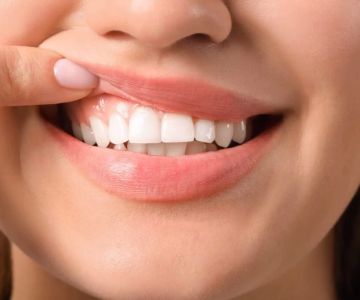
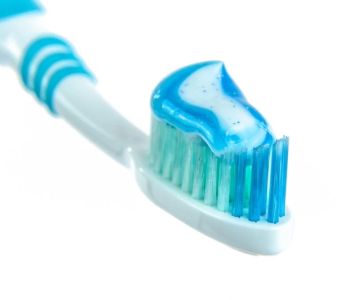
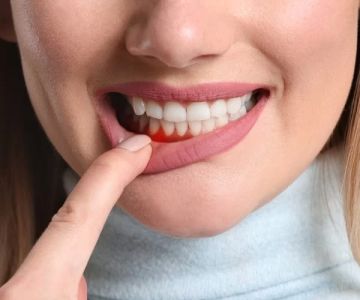
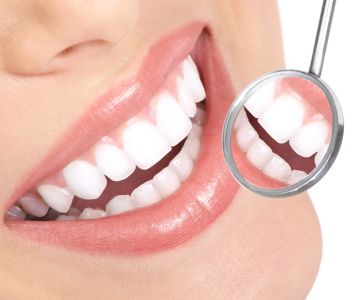

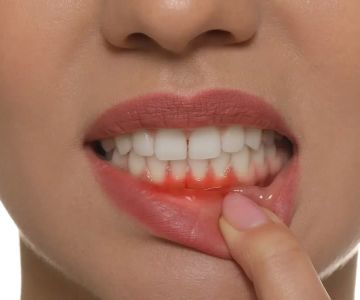
 Elegant Smiles of Sea Girt4.0 (130 review)
Elegant Smiles of Sea Girt4.0 (130 review) Superior Smiles3.0 (23 review)
Superior Smiles3.0 (23 review) Westchester Smile Design | Part of the Roligo Network4.0 (525 review)
Westchester Smile Design | Part of the Roligo Network4.0 (525 review) Clove Dental Camarillo4.0 (225 review)
Clove Dental Camarillo4.0 (225 review) North Georgia Pediatric Dentistry4.0 (673 review)
North Georgia Pediatric Dentistry4.0 (673 review) Bio Dental4.0 (450 review)
Bio Dental4.0 (450 review) The Importance of Oral Health Education During Pregnancy for a Healthy Pregnancy
The Importance of Oral Health Education During Pregnancy for a Healthy Pregnancy Best Tips for Brushing Your Teeth Properly for Healthy Gums: Essential Techniques for Oral Health
Best Tips for Brushing Your Teeth Properly for Healthy Gums: Essential Techniques for Oral Health Why Skipping Dental Checkups Can Lead to Bigger Oral Health Problems
Why Skipping Dental Checkups Can Lead to Bigger Oral Health Problems Advantages of Porcelain Dental Restorations
Advantages of Porcelain Dental Restorations How Can Diabetes Cause Tooth and Gum Problems? Preventing and Managing Oral Health Issues
How Can Diabetes Cause Tooth and Gum Problems? Preventing and Managing Oral Health Issues Healthy Habits for Promoting Good Oral Health and Hygiene: Tips for a Healthy Smile
Healthy Habits for Promoting Good Oral Health and Hygiene: Tips for a Healthy Smile